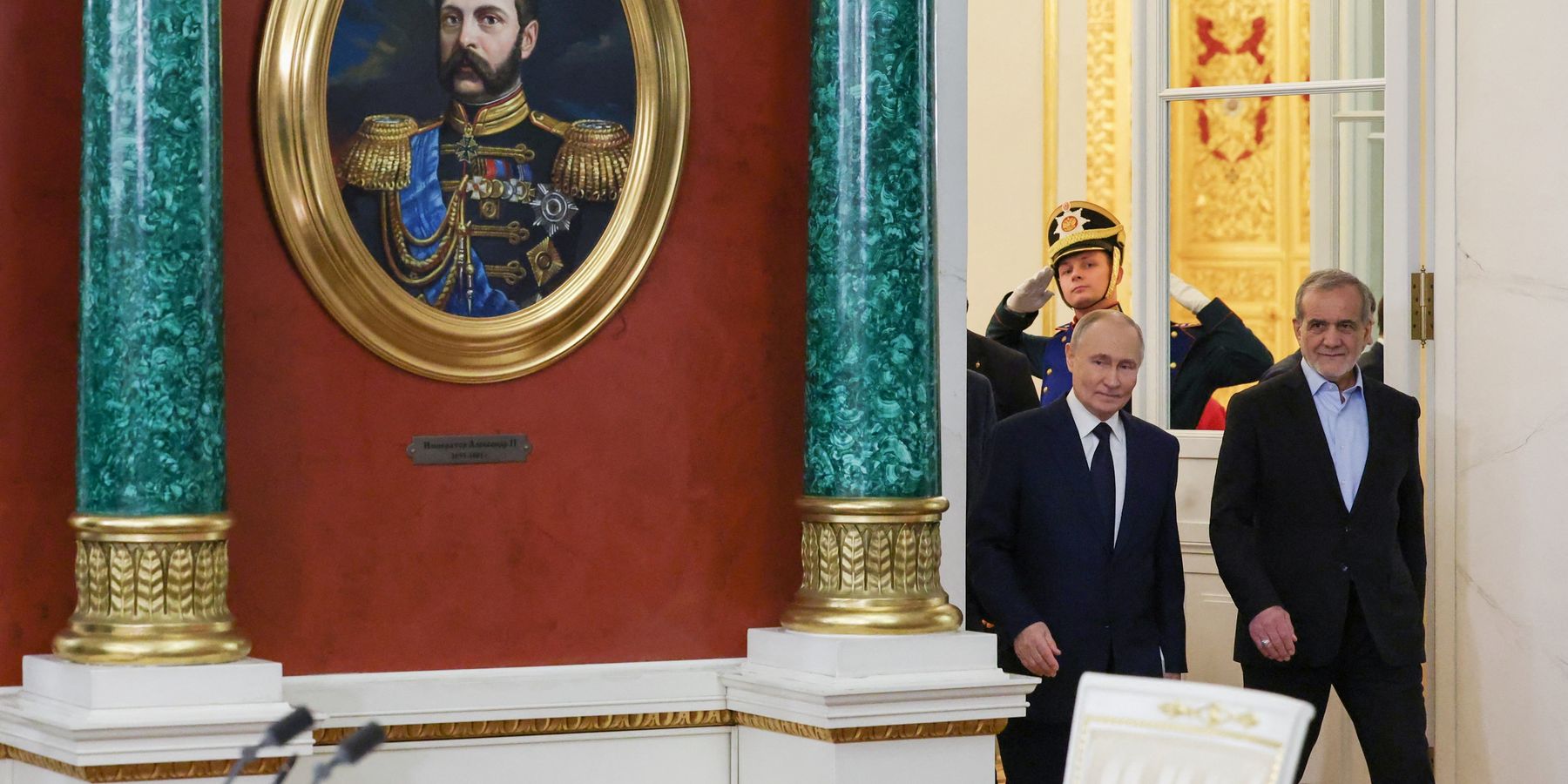Russia is reportedly interested in assisting U.S. efforts to negotiate a new and broader nuclear deal with Iran.
The potential for Washington-Moscow cooperation on Iran’s nuclear program comes as the Middle East continues to experience its most tumultuous days in recent memory, facing a litany of risks that could ignite into broader conflict at any moment. While some view Iran’s so-called Axis of Resistance as on the back foot, justifying an aggressive posture to “reshape the Middle East,” the reality is that any added aggression risks disaster in a region where Washington should be hyper-focused on shrinking its footprint.
The reporting on potential Russian mediation comes one month after President Donald Trump signed a National Security Presidential Memorandum (NSPM-2), declaring a return of “maximum pressure” against Iran. NSPM-2 makes clear its reasoning for maximum pressure: “Iran’s behavior threatens the national interest of the United States. It is therefore in the national interest to impose maximum pressure on the Iranian regime to end its nuclear threat, curtail its ballistic missile program, and stop its support for terrorist groups.”
Trump has left the option of military strikes on Iranian nuclear and military sites on the table should non-military efforts fail to curtail Tehran.
This rationalization of interests could not be further from the truth when considering the use of military force versus diplomatic mechanisms to rein in Iran’s nuclear program. The United States has very narrowly defined interests in the Middle East, regardless of what hawkish pundits would have the American public believe. Indeed, the opposite of NSPM-2 is true of U.S. regional policy priorities: avoiding a war with Iran is a core U.S. interest.
Policymakers should always try to apply a restrained approach to military force that considers the law and vital national interests. In this regard, there is not a legal basis for attacking Iran. More importantly, Iran does not present an existential threat to the United States in any current or medium-term scenario. Rather, Tehran presents an immediate threat to the interest of certain regional partners — namely Israel — and U.S. forces left exposed in forward positions across the Middle East.
Yet even when observing regional geopolitical dynamics, the Islamic Republic is not an existential threat to Israel, which is the most powerful Middle Eastern country militarily. This says nothing of the natural regional rebalancing that has occurred over time to check Iranian actions, including but not limited to the Abraham Accords, a growing interstate missile defense network, and the China-sponsored renormalization agreement between Saudi Arabia and Iran.
Beyond interests, any maximum pressure strategy against Iran that includes striking its nuclear and military facilities would be ineffective and counterproductive. The U.S. intelligence community estimates that an attack on Iran’s nuclear sites would achieve a modest impact at best, setting back Tehran’s nuclear program by only “weeks or months” without eliminating its ability to reconstitute.
The Islamic Republic cannot be fully isolated from the world in any way that would block efforts to resist maximum pressure or rebuild its nuclear program, as witnessed by its increasingly close, albeit transactional, relations with Russia, China, and many of its neighbors. Indeed, on the nuclear file, it has the domestic knowledge base to resume nuclear activities after any attack.
Worse, a massive strike on Iranian nuclear and military sites will effectively kill any future attempts at diplomacy between the West and Tehran. The Islamic Republic’s leadership is already skeptical of the West and bases much of its limited legitimacy on anti-American and anti-imperial sentiment. Hawkish decisions against the country empower Iranian hardliners and vice versa, leaving limited options for permanently curtailing the Iranian nuclear program outside of violent regime change while inducing a race to the bottom that fuels hardline views and policies.
Yet any future war with Iran will be disastrous for the Middle East and globally — including the United States. It also harms an additional core but narrow interest: sustaining regional stability for the free flow of energy products in support of global energy security. Washington and the broader international community cannot afford a brutal war with one of the region’s most powerful countries, let alone one with proxies willing to expand the conflict region-wide.
While Iran will likely lose any war with the United States, the post-conflict scenario is equally undesirable. Iran is a large and diverse country with multiple ethnicities that would fight for statelets from the former nation, inducing a 2006 Iraq-style civil conflict with disastrous results.
There are better ways to approach the issue of Iran’s nuclear ambitions, as news of potential U.S.-Russia cooperation on the issue highlight. While building a coalition of world leaders interested in curtailing Iran’s nuclear program, U.S. officials would be wise to voice opposition publicly and privately to unhelpful policies that stifle a diplomatic approach. That effort should include tempering Israel’s ambitions to change the security environment through short-sighted, military-first strategies.
Such considerations are critical for advancing real U.S. interests, which preclude yet another Middle East war.
















